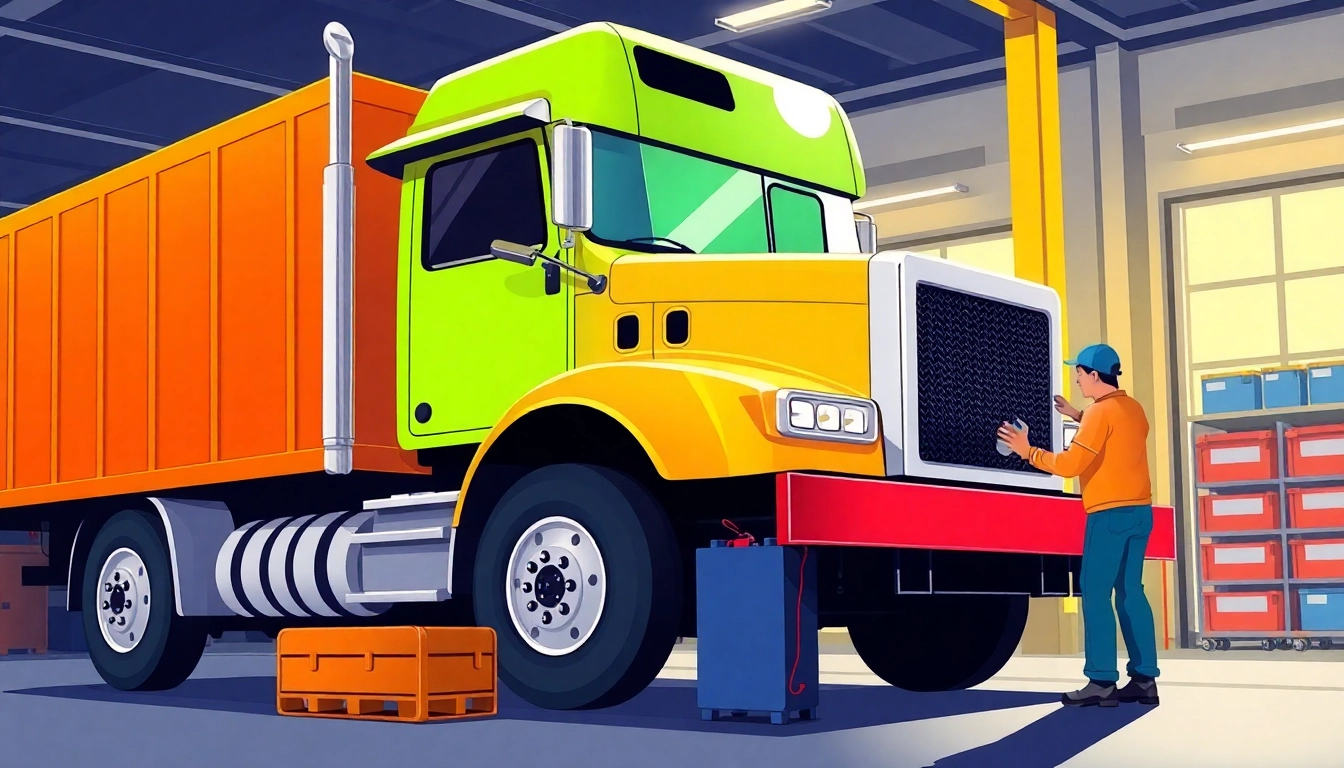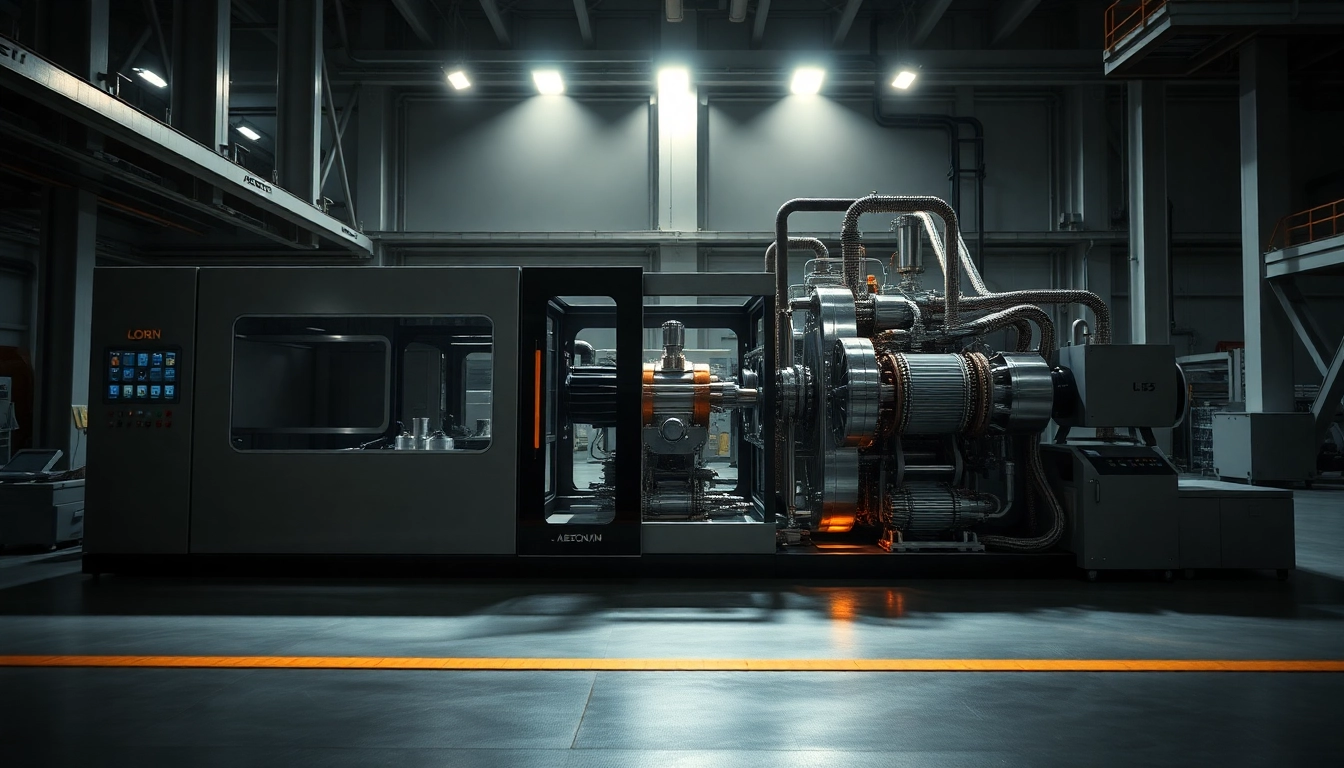Understanding Heavy Truck Batteries
The Role of Batteries in Heavy Trucks
Batteries play a crucial role in heavy trucks, providing not only the necessary power to start the engine but also powering various systems while the engine is off. These systems include electronic control units (ECUs), lighting, air conditioning, and entertainment systems, which are essential for long-haul trucking. A reliable battery ensures that these systems operate effectively, ultimately contributing to safety and efficiency on the road.
Most heavy trucks utilize dual battery systems to meet the high starting demands of diesel engines, which require significant amperage to initiate combustion. This necessity stems from diesel engines’ design, which relies on compression ignition instead of a spark, demanding a higher power output for starting compared to gasoline engines.
Types of Batteries for Heavy-Duty Applications
When it comes to heavy trucks, various batteries are tailored for specific applications. The most common types include:
- Lead-Acid Batteries: The traditional choice for heavy-duty trucks, lead-acid batteries are cost-effective and widely available. They come in two main varieties: flooded and sealed (AGM). Flooded batteries require maintenance, while AGM batteries are maintenance-free and provide better resistance to vibration.
- Lithium-Ion Batteries: Emerging as a robust alternative, lithium-ion batteries are lighter and have a longer lifespan than conventional lead-acid batteries. However, they tend to be more expensive and require specific charging systems.
- Gel Batteries: These offer advantages in deep-cycle applications, providing reliable performance in extreme temperatures. They are also maintenance-free and resistant to leaks.
Common Signs of Battery Failure in Trucks
Identifying battery issues early can prevent costly breakdowns and enhance reliability. Common signs of battery failure include:
- Slow Engine Crank: If the engine struggles to start, it may indicate a weak battery.
- Electrical Accessories Not Functioning: Dimming lights or malfunctioning electronic components can also signal battery issues.
- Corrosion at Terminals: Visible corrosion can interfere with battery performance and connection.
- Check Battery Light: If your truck dashboard indicates battery issues, it’s crucial to investigate immediately.
Choosing the Right Battery Replacement
What to Look for When Replacing Truck Batteries
Choosing the right replacement battery involves several considerations. Firstly, assess the specific power requirements of your truck, considering both the engine size and any additional accessories that require power. The battery replacement for heavy trucks on the road should be capable of delivering adequate cold cranking amps (CCA) to ensure reliable starting performance.
Next, consider the warranty and lifespan of the battery. A good warranty indicates confidence in the product and can save costs over time. Additionally, consider whether you prefer AGM or flooded batteries based on your maintenance preferences and the typical operating conditions.
Comparing Lead-Acid and Lithium Batteries
The comparison between lead-acid and lithium batteries reveals significant differences. Lead-acid batteries are more affordable upfront and widely used, but they tend to have a shorter life span and can be heavy, affecting vehicle weight and fuel efficiency. In contrast, lithium batteries, while pricier, offer a longer operational life, reduced weight, and faster charging times.
Many trucking companies are starting to adopt lithium batteries due to their performance benefits, especially for fleets that prioritize uptime and efficiency.
Factors Affecting Battery Life and Performance
Several factors influence the longevity and effectiveness of heavy truck batteries:
- Temperature: Extreme temperatures can significantly affect battery performance. High temperatures can cause battery fluid to evaporate, leading to a shorter lifespan. Conversely, cold temperatures can reduce available power.
- Usage Patterns: Frequent deep discharges and recharges can diminish battery life.
- Maintenance: Regular checks and cleaning of battery terminals can prevent corrosion and maintain optimal performance.
The Replacement Process
Step-by-Step Guide to Replacing Your Heavy Truck Battery
Replacing a heavy truck battery can be accomplished by following these straightforward steps:
- Preparation: Ensure you have the correct replacement battery and tools, such as wrenches and safety gear.
- Disconnect the Old Battery: Start by turning off the engine and disconnecting the negative terminal first, followed by the positive terminal.
- Remove the Old Battery: Safely lift the old battery out of its compartment, being cautious of any weight.
- Install the New Battery: Place the new battery in the same position as the old one, connecting the positive terminal first followed by the negative terminal.
- Test the Connection: Start the engine to ensure the new battery is functioning correctly.
Tools Required for Battery Replacement
Having the right tools is essential for a smooth battery replacement process. Tools required include:
- Wrenches (to fit terminal bolts)
- Safety gloves and goggles
- A battery terminal cleaner (for corrosion removal)
- A ratchet and socket set for securing the battery in place
Safety Precautions During Replacement
Safety should always be a priority when replacing batteries, especially in heavy trucks. Take the following precautions:
- Wear protective gear to guard against battery acid.
- Ensure the engine is off to prevent accidents.
- Be cautious of the battery’s weight and ensure proper lifting techniques.
- Work in a well-ventilated area to avoid potential exposure to gases.
Cost Considerations for Battery Replacement
Average Costs for Heavy Truck Battery Replacement
The price of heavy truck batteries can vary widely based on type and brand, typically ranging from $200 to over $800. Factors influencing the cost may include:
- Type of battery (lead-acid vs. lithium)
- Brand reputation and warranty
- Service location (in-shop vs. mobile services)
Understanding Warranty Options and Guarantees
Most reputable battery manufacturers offer warranty options that serve as a safety net for consumers. Warranties can range from 12 months to several years, covering defects and performance issues. Understanding what each warranty entails, including terms and conditions, is essential when selecting a battery.
Additionally, some companies provide guarantees beyond the standard warranty, such as performance guarantees, ensuring that the battery will perform to specified standards.
When to Consider Professional Assistance
Though many truck owners can replace the battery themselves, certain situations warrant professional assistance:
- If you’re unfamiliar with the battery specifications required for your truck.
- In the event of complex electrical issues affecting battery performance.
- When you require a warranty or guarantee service that necessitates professional installation.
Maintaining Your Heavy Truck Battery
Best Practices to Extend Battery Life on the Road
To maximize battery life and performance, implement these best practices:
- Regularly check battery terminals for corrosion and clean as needed.
- Monitor battery voltage with a digital voltmeter, ideally performing checks monthly.
- Avoid short trips where the alternator may not fully charge the battery.
Monitoring Battery Health with Regular Checks
Routine monitoring is key to ensuring your heavy truck battery remains in optimal condition. Implement a schedule for checking:
- Battery fluid levels (if applicable)
- Terminal connections for tightness and cleanliness
- Overall battery age, as most batteries have a lifespan of 3-5 years.
Troubleshooting Common Battery Issues
If you encounter battery-related problems, troubleshooting can help identify the issue:
- For starting issues, assess CCA ratings compared to manufacturer specifications.
- Regularly check the alternator’s function, as it’s responsible for charging the battery while the engine runs.
- Evaluate accessory use; high demands can drain the battery faster than it can recharge.



